Systemic Anti-Cancer Therapy Regimen Library
CNS GBM Recurrent - beVACizumab Q3W
Treatment Overview
This regimen contains a medicine where one or more biosimilars may exist. Any biosimilars used have been reviewed by the regulator (Medsafe) and relevant specialists were consulted nationally. Where regulators, in consultation with relevant specialists, have agreed that there are no clinically significant differences in either safety or effectiveness between a biosimilar and originator product, these drugs may be used interchangeably.
Cycle 1 (and all further cycles) - 21 days
Cycle details
Cycle 1 (and all further cycles) - 21 days
| Medication | Dose | Route | Days | Max Duration |
|---|---|---|---|---|
| beVACizumab * | 15 mg/kg | intravenous | 1 | 90 minutes |
Full details
Cycle 1 (and all further cycles) - 21 days
Day: 1
| Medication | Dose | Route | Max duration | Details |
|---|---|---|---|---|
| beVACizumab * | 15 mg/kg | intravenous | 90 minutes |
Instructions:
Blood pressure and urinalysis should be checked before each administration. If urine dipstick protein is less than or equal to 3+, proceed with infusion. If the initial dose of beVACizumab is well tolerated, the second dose may be administered over 60 minutes, and the third and subsequent doses may be administered over 30 minutes. |
Supportive Care Factors
| Factor | Value |
|---|---|
| Emetogenicity: | Minimal |
| Hypersensitivity / Infusion related reaction risk: | Low - routine premedication not recommended |
References
* The medicines, doses, combinations, and schedule in this treatment regimen have been carefully reviewed against international best practice guidelines by specialists in medical oncology around New Zealand and this advice has been accepted for publication by Te Aho o Te Kahu (the Cancer Control Agency). Sometimes medicines that are used in routine clinical practice have not been through a formal review process by the NZ Medicines Regulator Medsafe and are therefore considered unapproved or off-label. These medicines are legally able to be prescribed through sections 25 and 29 of the Medicines Act and by obtaining informed consent from patients. All treatment regimens listed on this website have been through robust peer review and are considered an accepted standard of care, whether prescribed through sections 25 or 29 or carrying formal Medsafe Approval.
s29: This symbol indicates that some formulations of the associated medicine are legally only able to be prescribed under section 29 of the Medicines Act. You can see which formulations are section 29 by hovering over the s29 symbol. You can access full medication details from the New Zealand Formulary by clicking on the medication name. Each clinician retains full responsibility for ensuring they have complied with all relevant obligations and requirements of section 29 including obtaining informed patient consent prior to prescribing the applicable medicine.






